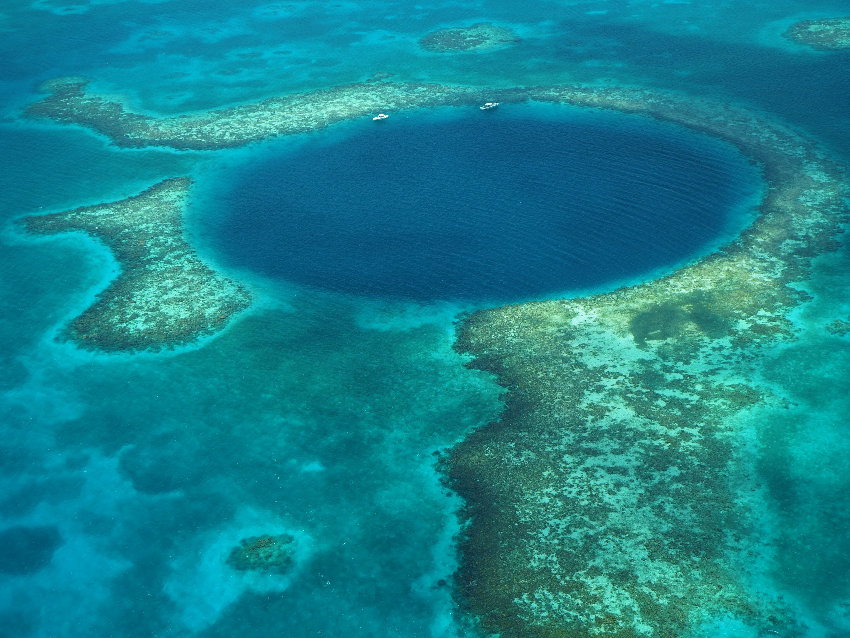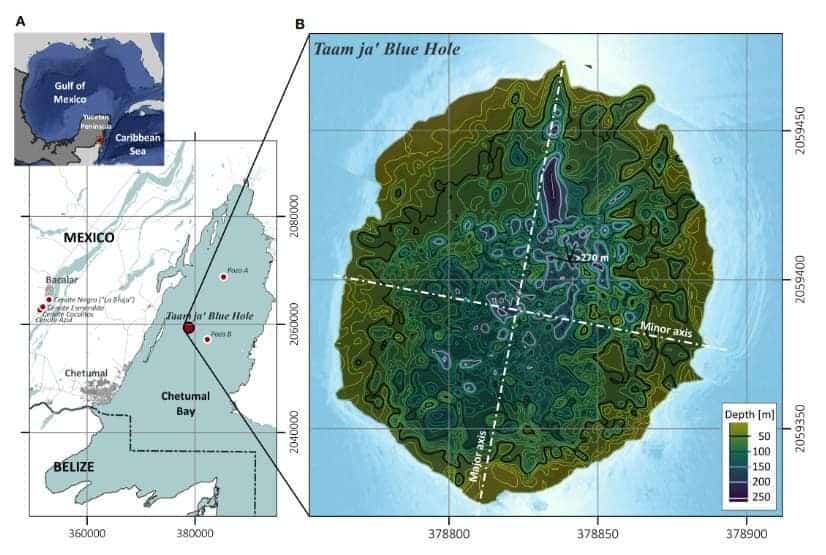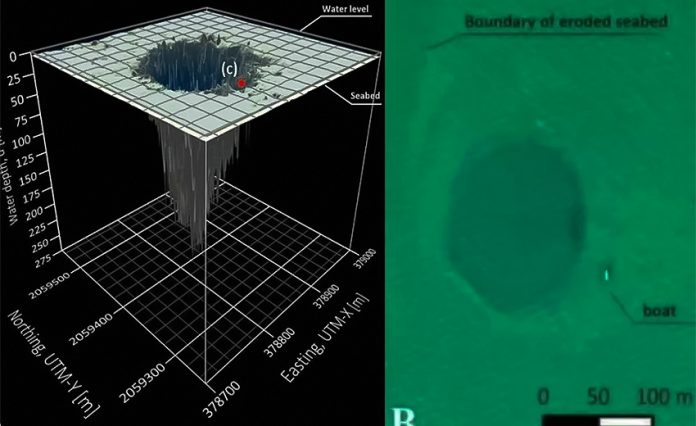A blue hole in Chetumal Bay, Quintana Roo, has been determined to be the second deepest known blue hole in the world.
First things first – what is a blue hole?

According to the Office of Ocean Exploration and Research, a division of the United States National Oceanic and Atmospheric Administration, blue holes are “underwater sinkholes, similar to sinkholes on land.”
“… A blue hole can be an oasis in an otherwise barren seafloor. Blue holes are diverse biological communities full of marine life, including corals, sponges, mollusks, sea turtles, sharks and more,” the office says on its website.
The world’s deepest known blue hole is the almost 301-meter-deep Sansha Yongle Blue Hole, also known as Dragon Hole, located near the Paracel Islands in the South China Sea.
The Taam ja’ Blue Hole (TJBH), as the blue hole in Chetumal Bay has been named, is more than 274 meters below sea level, making it the second deepest known blue hole in the world, according to Mexican scientists who studied it.

Six researchers from the Colegio de la Frontera Sur (College of the Southern Border), or Ecosur, recently published a paper about the blue hole in the Frontiers in Marine Science journal.
Sampling and surveying of the TJBH, located northeast of the city of Chetumal, “were conducted in September 2021 by scuba, echosounders, CDT [conductivity, temperature and depth] profilers, and the collection of water samples,” the scientists said in the paper, published Feb. 23 under the title “First insights into an exceptionally deep blue hole in the Western Caribbean: the Taam ja’ Blue Hole.”
The study, carried out in conjunction with a local fisherman, “revealed a previously unknown maximum water depth … of 274.4 meters below sea level,” they wrote.
According to the paper, the TJBH has “a nearly circular shape at its surface,” which encompasses an area of 13,690 square meters, and steep sides with slopes of more than 80 degrees that “form a large conic structure covered by biofilms, sediments, limestone, and gypsum ledges.”
Its mouth is about five meters below sea level, the researchers said, noting that the temperature and salinity of water “change significantly” at the entrance.
The formation of the blue hole was “likely associated with glacio-eustatic changes in the Yucatán Caribbean coast,” the paper said, referring to sea level changes associated with the uptake or release of water from glaciers.
It also said that the location of the Taam ja’ Blue Hole – whose name means “deep water” in Mayan” – near the coasts of both Mexico and Belize “would inevitably imply an increase of local and foreign visitors, the development of economic activities, and very probably of environmental pressure.”
The Great Blue Hole, located off the coast of Belize, is a popular diving destination.
The Ecosur researchers said that “regulatory measures” might be needed to protect the TJBH, although they noted that it is within a state-managed manatee reserve.
The National Council of Science and Technology (Conacyt) noted in a statement that the TJBH is the first blue hole to be identified in an estuarine system.
It said that the blue hole is of “great relevance for scientific marine research” as it “represents a window to obtain information about how the environment and climate were thousands of years ago.”
Such information could aid “the understanding of environmental and geological processes, the connectivity of aquifers and the origin of water from these hydrogeological systems,” Conacyt said.
Mexico News Daily
